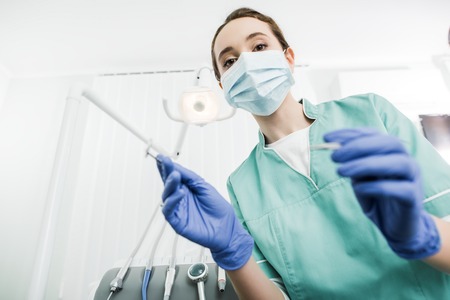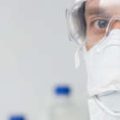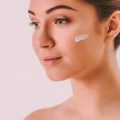Current State of Rosacea Research in the UK
Rosacea research in the UK stands at an intriguing crossroads, shaped by a rich tradition of dermatological excellence and a forward-thinking approach to clinical investigation. Over the past decade, British researchers and medical institutions have made notable contributions to our understanding of rosacea, with a particular focus on its underlying causes, diverse presentations, and psychosocial impact. The NHS, together with renowned academic centres such as Kings College London and the University of Manchester, has been instrumental in driving both laboratory-based and patient-focused research efforts. Many UK-based studies have delved into genetic predispositions unique to British populations, while others have examined environmental triggers pertinent to the local climate—such as fluctuating temperatures and air pollution often experienced in urban settings like London or Manchester. Importantly, British clinical guidelines for rosacea management are increasingly informed by homegrown evidence, ensuring that treatment recommendations reflect both global advances and the realities faced by patients across the UK. This strong foundation provides a springboard for future developments and innovative approaches set to emerge from ongoing research and upcoming clinical trials.
Innovative Therapies on the Horizon
One of the most exciting aspects of rosacea research in the UK is the development of innovative therapies that promise to transform daily management for those affected. From my own experience navigating skincare aisles and consulting with British dermatologists, it’s clear that the landscape is rapidly evolving—moving well beyond traditional treatments like metronidazole and azelaic acid.
Emerging Skincare Solutions
British researchers are at the forefront of creating new topical formulations designed to calm redness and strengthen sensitive skin barriers. These include biomimetic peptides, next-generation ceramides, and even microbiome-balancing creams tailored for the unique climate and pollution levels of UK cities. The focus isn’t only on symptom relief but also on restoring confidence through gentle yet effective products.
Advanced Pharmacological Developments
The pipeline for oral and injectable treatments is equally promising. Clinical trials underway across major NHS hospitals are exploring novel anti-inflammatory agents, vascular modulators, and targeted biologics. Below is a quick overview of some key innovations under investigation:
| Treatment Type | Mechanism | Status in UK |
|---|---|---|
| Microbiome Therapy | Balances skin flora to reduce flare-ups | Pilot studies in progress |
| Vascular Laser Devices | Targets visible blood vessels and redness | Expanded use in private clinics |
| Selective JAK Inhibitors | Reduces inflammatory pathways | Phase II clinical trials |
| Biologics (e.g., IL-17 inhibitors) | Modulates immune response specific to rosacea triggers | Early stage research at university centres |
A Collaborative Approach Across the UK
The beauty of these developments lies not just in their scientific sophistication but also in the collaborative spirit driving them—NHS trusts, universities such as King’s College London, and pharmaceutical innovators are pooling resources and expertise. As someone who appreciates both personal wellness journeys and collective progress, I find this particularly heartening.
A Hopeful Future for Rosacea Sufferers
If you’re managing rosacea here in Britain, these advancements offer genuine hope. While each breakthrough undergoes rigorous scrutiny to ensure safety for our diverse population, there’s a palpable sense of optimism that tomorrow’s therapies will be more personalised, effective, and gentle than ever before.
![]()
3. Ongoing and Upcoming Clinical Trials
In the UK, clinical trials for rosacea are currently at the forefront of dermatological innovation, with a range of studies running from London to Edinburgh. These trials, meticulously designed and ethically regulated, reflect a uniquely British approach—combining rigorous scientific standards with patient-centred care. Many recent and ongoing trials focus on both topical and oral therapies, examining new molecules as well as repurposing existing medications in novel ways. What’s particularly striking about UK-based research is its collaborative nature; major NHS trusts work hand-in-hand with academic institutions and industry partners, ensuring that findings are robust and widely applicable.
For instance, several Phase II and III trials are underway exploring the efficacy of next-generation anti-inflammatory agents, laser therapies, and even biologics—a field previously reserved for more severe skin conditions. The structure of these studies is notably comprehensive: patients are recruited through transparent processes, often via NHS dermatology clinics, and benefit from thorough follow-up schedules. Researchers place a strong emphasis on real-world outcomes, measuring not just symptom reduction but also quality of life improvements—a nuance sometimes overlooked elsewhere.
What truly sets UK trials apart internationally is their inclusivity and focus on diverse patient populations. Efforts are made to enrol participants across various age groups, ethnic backgrounds, and rosacea subtypes. This diversity ensures that results are meaningful for the wider community. In addition, many British studies include patient advisory panels at every stage—a testament to the belief that those living with rosacea should have a say in shaping future treatments. As these trials progress, they don’t just promise new therapies; they embody a distinctively British vision of research that values collaboration, inclusivity, and tangible impact on everyday lives.
4. The Influence of British Lifestyle and Environment
Rosacea is a complex skin condition, and as someone who has lived in the UK for many years, I’ve noticed how distinctively British elements—like the ever-changing weather, traditional diets, and the hustle of city life—have shaped both personal experiences and cutting-edge research into rosacea. In recent years, UK-based clinical trials have increasingly taken these lifestyle factors into account, recognising that personalised treatment must reflect our daily realities. Researchers are now delving into how exposure to frequent rain, cool temperatures, and sudden weather shifts can trigger or worsen rosacea flare-ups among British patients. This focus on local environmental stressors is helping clinics design more effective prevention strategies tailored to our unique climate.
Weather: Navigating the Unpredictable
British weather is famously unpredictable—one moment it’s raining, the next it’s sunny with a biting wind. These rapid changes can be particularly challenging for those with rosacea, as temperature fluctuations and humidity levels play a significant role in skin sensitivity. Clinical trials are now investigating topical solutions and daily skincare routines that buffer against these climatic swings. For example, some studies are exploring barrier creams specifically formulated to protect skin from both damp cold and dry indoor heating—an everyday reality here in the UK.
Diet: More Than Just Tea & Toast
The British diet is another area where local habits are influencing research directions. Traditional foods, such as hearty stews, spicy curries, and, yes, plenty of black tea, are being studied for their effects on inflammation and skin health. Researchers are collaborating with nutritionists to understand how common dietary triggers may differ in the UK compared to other countries. This has led to more nuanced guidance for patients seeking personalised advice rather than one-size-fits-all recommendations.
| British Factor | Impact on Rosacea | Current Research Focus |
|---|---|---|
| Weather Variability | Triggers facial redness and sensitivity | Protective skincare formulations; weather-adaptive regimens |
| Traditional Diet | Certain foods may increase inflammation or flare-ups | Personalised nutritional advice; identifying regional triggers |
| Urban Living | Exposure to pollution and stress contributes to symptoms | Environmental controls; stress management interventions |
Urban Living: The City’s Hidden Impact
Living in bustling cities like London or Manchester means daily exposure to pollution and high-stress environments—both recognised as contributing factors for rosacea flares. Recent UK-based trials are looking at air quality monitors and wearable tech to track individual exposure to irritants, while also testing new antioxidant-rich skincare products designed to combat urban pollutants. There’s even an emerging trend towards mindfulness programmes integrated within dermatology clinics to address stress-related triggers.
A Personal Reflection on Local Innovation
I find it fascinating—and quite reassuring—that ongoing research here doesn’t just import solutions from abroad but genuinely reflects our British way of life. From my own experience juggling umbrellas and navigating crowded Tube stations with sensitive skin, I’m encouraged by these locally inspired innovations. It’s clear that future developments in rosacea research will continue to embrace what makes living in the UK unique—offering hope for truly personalised care grounded in our everyday environment.
5. The Role of NHS and Patient Advocacy
When it comes to rosacea research and patient support in the UK, the NHS and local advocacy organisations play a pivotal role. Their combined efforts not only advance scientific understanding but also bring genuine hope and guidance to those navigating life with rosacea. The NHS, as the backbone of British healthcare, ensures that patients have access to the latest treatments and clinical trials. Through ongoing collaborations with universities and research centres, they are able to incorporate cutting-edge findings directly into patient care pathways, bridging the gap between laboratory breakthroughs and daily lived experience.
NHS Initiatives Supporting Rosacea Research
Across the UK, NHS Trusts are actively involved in multi-centre studies aimed at better understanding the triggers, progression, and management of rosacea. These initiatives often invite patient participation, making it possible for everyday people to contribute directly to the future of dermatological care. From comprehensive data collection to genetic analysis, these projects reflect a uniquely British spirit of community involvement in science.
Empowering Patients through Advocacy Groups
Local patient advocacy groups—such as The British Skin Foundation and Changing Faces—stand out for their dedication to raising awareness about rosacea. Their campaigns foster public understanding while also giving a voice to those affected by the condition. By hosting educational events, sharing personal stories, and facilitating peer support networks, these organisations create a supportive environment where no one feels isolated or misunderstood.
A Symbiotic Relationship Driving Progress
The synergy between the NHS and advocacy groups is particularly striking: while the NHS offers medical expertise and infrastructure, advocacy groups provide lived experience and grassroots momentum. Together, they champion early intervention strategies, encourage participation in clinical trials, and advocate for increased research funding from both government bodies and private donors. This holistic approach ensures that advances in rosacea treatment remain closely aligned with patient needs, reflecting not just scientific progress but also a deep sense of empathy—a value deeply woven into UK culture.
6. Looking Ahead: The Future for Rosacea Sufferers in Britain
As we stand on the cusp of significant breakthroughs in rosacea research here in the UK, it is impossible not to feel a surge of optimism about the future. The promise held by innovative treatments and the expanding scope of clinical trials speaks directly to those of us who have navigated the daily challenges of rosacea—whether it’s the flush that appears at a crucial moment or the persistent sensitivity that shapes our skincare choices. There is something uniquely British about the way we approach these hurdles: with resilience, pragmatism, and a touch of understated hope.
These new scientific developments could well mean a shift from simply managing symptoms to actually transforming lives. Imagine, for example, a future where you can sit in a sunlit pub garden without fretting over an imminent flare-up, or confidently accept spontaneous invitations, knowing your skin won’t betray you at the worst possible time. With UK-led trials focusing on tailored therapies and precision medicine, this vision feels within reach.
For many, rosacea isn’t just a skin condition—it’s woven into the fabric of daily life, influencing everything from wardrobe choices to social plans. The prospect of more effective and accessible treatments could restore not only physical comfort but also self-assurance. Having personally experienced both the frustrations and small victories in my own journey, I am encouraged by how these innovations honour our individuality. British researchers’ commitment to inclusivity ensures that solutions reflect our diverse communities—from bustling London boroughs to rural Scottish villages.
Of course, no advancement arrives overnight. Patience remains key; yet there is genuine excitement as we watch clinical trial results unfold and see familiar NHS clinics embrace new protocols. Each step forward is a testament to collaboration—between scientists, clinicians, and everyday people who volunteer their stories and time for research.
Ultimately, as I look ahead alongside my fellow Britons living with rosacea, I feel heartened by what’s coming. Our collective experience—marked by perseverance, ingenuity, and quiet courage—is being met with cutting-edge science rooted firmly on home soil. With continued investment and open dialogue between patients and professionals, the future promises not just clearer skin but richer lives for all who call Britain home.


